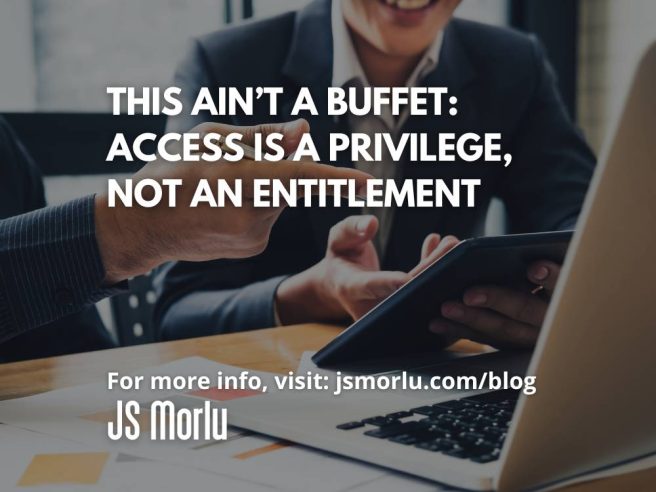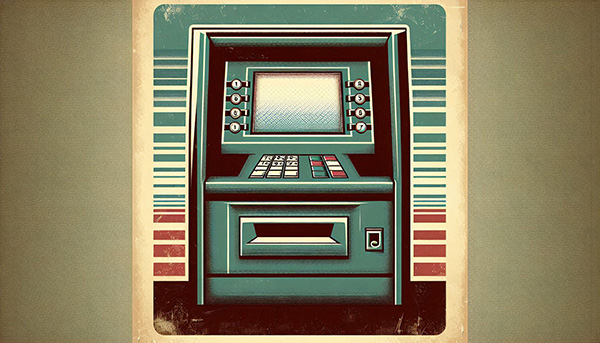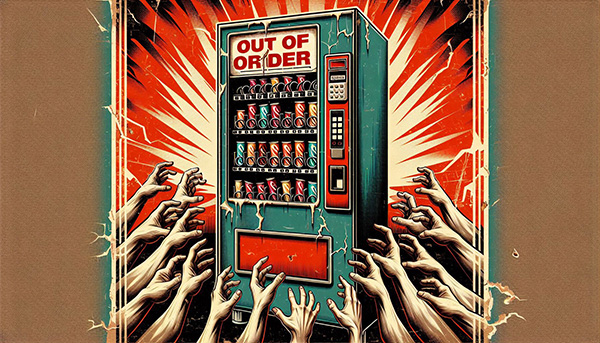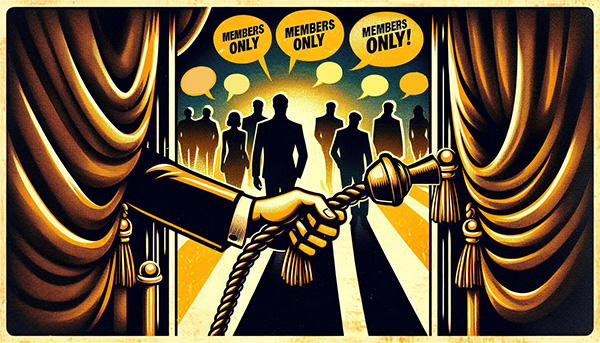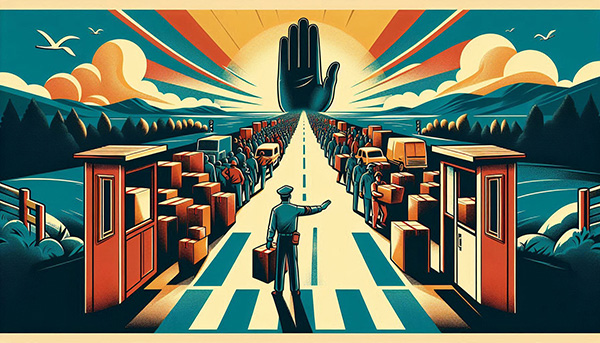By: John S. Morlu II, CPA
Let’s set the record straight before someone Venmos a guilt trip: access to someone’s time, energy, knowledge, network, or resources is a privilege—not a birthright, not part of your inheritance, and definitely not guaranteed because you once exchanged oxygen in the same zip code.
You’d never walk into a stranger’s house, open their fridge, drink their last soda, and leave your crusty socks on the couch, right?
Well guess what—people do the emotional version of that every single day. They pop into your life like Amazon Prime subscribers expecting next-day results on favors they didn’t earn and never said thank you for.
Somehow, just because you laughed at the same meme in 2012 or once stood next to each other in a blurry group photo, they feel entitled to your time, your money, your contacts, and occasionally—your soul.
And the stats are getting ridiculous:
- 72% of people will text “hey big bro” before asking for money.
- 9 out of 10 “quick favors” turn into unpaid internships.
- 83% of folks who say “I got you next time” don’t even have your number saved.
- And 100% of people who ghosted you in your struggle will remember your birthday if they think there’s cake and cash involved.
Even Peter Thiel, the genius behind assembling the PayPal Mafia (a.k.a. the Avengers of Silicon Valley) and one of Facebook’s first investors, wrote bluntly on Cato Unbound, a blog run by the libertarian think tank:
“Since 1920, the vast increase in welfare beneficiaries and the extension of the franchise to women — two constituencies that are notoriously tough for libertarians — have rendered the notion of ‘capitalist democracy’ into an oxymoron.”
Whether you agree or not, it reinforces the point: modern entitlement culture makes boundaries look like betrayal and access feel like a human right.
The world has changed. Entitlement is now a lifestyle.
And if we keep feeding it, it’ll lead to nothing but burnt-out friendships, missed opportunities, and emotional indigestion for everyone involved.
1. Fun Fact: Even ATMs Ask for a PIN
Let’s start with something simple. An ATM, a literal box of cash, will not hand over your money without a PIN. And it’s your money! But you’ve got people who haven’t spoken to you in years texting, “Hey boss, I need a small favor…” followed by a six-paragraph life story with zero punctuation and one massive request.
Some real examples you’ve probably seen:
- “I heard you’re doing well now, so I was wondering if you could just pay my school fees. It’s only $2,800. God will bless you.”
- “Big bro, I see you’ve been traveling a lot. Can you link me with someone in Canada?”
- “Hey, quick question: I want to start a business. Can you write the proposal and maybe also send a little startup cash?”
- “You posted about leadership. I need you to mentor me… and also hire me… and also maybe co-sign this loan.”
- “Can you connect me to that investor you met in Dubai? I have an idea for an app… I just don’t know what it does yet.”
- “I have this cousin who’s really smart. Can you find him a job? He hasn’t finished school yet and also doesn’t believe in LinkedIn.”
- “I need help with my taxes. Also, I haven’t filed in five years. Also, I don’t believe in taxes.”
- “Can I pick your brain for just 5 minutes?” (Translation: I want free consulting, decision-making, and your entire strategic roadmap — over lunch that you’ll also be paying for.)
Meanwhile, they’ve ghosted you for 3 years, didn’t like one of your posts, never said thank you for the last favor, and somehow believe you owe them part of your success story like it’s a group project they forgot to show up for.
2. The Entitlement Epidemic: It’s Spreading Fast
There’s an invisible disease spreading across communities, organizations, families, and group chats. It’s called Chronic Entitlement Syndrome (CES). No mask can protect you, no vaccine can cure it, and the symptoms are loud, manipulative, and usually come with a fake “hope you’re doing well.”
People who catch it suffer from:
- Selective memory (they only remember your existence when they need something — usually with the phrase “Long time! I was just thinking about you…” as a warm-up for a personal GoFundMe disguised as a conversation)
- Chronic guilt-tripping (classic lines like “You’ve changed,” “Money has spoiled you,” and “We’re still your family, you know…” — all said without irony while ignoring your birthday three years in a row)
- Invisible participation (they didn’t help, contribute, support, or show up—but want front-row seats to your victory lap with free champagne and a LinkedIn endorsement)
- Sudden memory loss (conveniently forgetting who paid their school fees, helped with their immigration paperwork, or pulled them out of a legal mess that “wasn’t really their fault”)
And here’s the kicker: they don’t even see you as a human being anymore—much less one with red blood cells, responsibilities, or mental bandwidth.
To them, you are a walking transaction. A favor machine. A vending unit for opportunities. You are not a person; you are an endless means to their personal end—an ATM with emotional intelligence. A robot who magically solves problems with your “connections,” “influence,” “good heart,” and “you know people in high places.”
Some family members? Oh, they’re the deluxe edition. They’ll hit you with:
- “We’re blood. You owe us.”
- “After everything our great-great-great-grandparents did for your ancestors…”
- “So you mean to tell me you can help strangers and not your own cousin’s neighbor’s brother-in-law?”
They will take your silence as disrespect, your boundaries as betrayal, and your exhaustion as attitude. Because how dare you be tired of carrying their expectations on your back like a spiritual Uber driver?
3. Free Doesn’t Mean Forever (or Free Next Time)
Just because someone helped you once doesn’t mean they signed up to be your personal lifelong sponsor. This isn’t the United Nations. There’s no annual “Humanitarian Relief for Lazy Friends” fund. Trump already canceled those. And honestly, so should you.
Every person needs to cut off their own personal foreign aid budget—because as we say in
America: “You must earn your keep.”
Translation: Work. For. Everything. You. Want.
And when you do ask for help, it should be because you’ve actually tried, failed honestly, and now need real support—not because your favorite Netflix show just ended and you’re “figuring things out.”
But here’s the crisis of our time:
People confuse kindness for a subscription plan.
They expect you to:
- Answer every call (even if they’re calling from 3 time zones away at 3:42 a.m. with “just one quick ask”)
- Read every long-winded email (with no paragraph breaks, no punctuation, and at least 4 uses of the phrase “you’re my only hope”)
- Drop everything at 11:49 p.m. to edit their résumé (while they’re out partying and will send you the Word doc “when they get home”)
- Refer them to jobs, investors, or CEOs they’ve never met (“but he’s a good guy… he just doesn’t believe in showing up on time or dressing professionally. But he’s smart. Trust me.”)
Let me be painfully clear:
Help is not an inheritance. It is not a pension. It is not a subscription plan.
If you keep treating people like vending machines for resources, don’t act surprised when the screen flashes:
“Out of Order. Please Try Again Never.”
And here’s a truth bomb no one wants to swallow:
Past 18 years, even parents aren’t responsible. And children aren’t entitled.
The era of “I gave birth to you so now I deserve 65% of your paycheck and a house on the hill” is over.
The “I’m your cousin or “friend”, therefore send me rent money” economic policy is officially retired.
So what do we do now? Simple:
Just say thank you.
Yes—thank you.
It’s free. It won’t kill your battery. It won’t cost data. And guess what?
It actually builds more bridges than your next sob story.
4. The Circle Just Got Smaller – It’s Not Personal, It’s Policy
Let’s talk about circles.
When someone begins to grow, evolve, and become more intentional about their life, they’re not “changing”—they’re updating the guest list.
If you only show up with empty hands, endless asks, or dramatic energy, don’t be surprised if your name didn’t make the cut. We’ve gone from general admission to invite-only.
There’s a myth that access to someone must remain open forever if it was once granted.
Wrong.
Airports change gates. Phones change numbers. People change access codes.
We’re in a new season. The doors are closing for people who consistently take but never give, who drain but never recharge, who remember you only when they’ve exhausted every other option.
5. Interesting Tidbit: Even God Closed the Garden
The Garden of Eden had one rule. One. And when that boundary was crossed—boom, eviction.
No second chance. No negotiation. No “but we go way back.”
Just angels with flaming swords at the exit. You know, like God’s version of a restraining order.
So if the Creator of the Universe has boundaries, why are you mad that someone with a calendar, a mortgage, and a mental health routine finally said, “no more”?
Now here’s where it gets juicy:
A lot of people out here are using God as their career plan.
They say things like:
- “I’m just waiting on God.”
- “God will make a way.”
- “The Lord will touch your heart to help me.”
- “I haven’t applied anywhere yet, but I know God is preparing something.”
Let’s be clear: God is not your job application portal.
Yes, God provides. Yes, He blesses.
But He also said:
“By the sweat of your face you shall eat bread” (Genesis 3:19).
And, “If anyone is not willing to work, let him not eat.” (2 Thessalonians 3:10).
This isn’t prosperity gospel. This is personal responsibility doctrine.
Begging in God’s name without effort is not faith—it’s laziness with a halo.
And telling people “God will reward you for helping me” when you’ve done nothing to help yourself? That’s not religion—that’s manipulation.
Meanwhile, the same people will:
- Text “hey stranger” like you’re the one who disappeared.
- Get offended when you don’t drop everything for their latest crisis (a crisis that’s been in beta-testing since 2016).
- Tell others, “They think they’re too big now,” instead of admitting they burned the bridge by using it as emotional firewood.
God is generous. But even He didn’t keep handing out blessings to people who broke the rules and blamed it on “bad luck.”
So why should you?
6. Common Sense Checkpoint
Let’s break this down like instructions on a microwave dinner:
- You want someone’s time? Don’t waste it.
- You want their help? Don’t make it a habit.
- You want access? Don’t treat it like a free streaming service.
- You want another favor? Ask yourself: Did I ever repay the first one—or even say thanks?
Also:
- If someone sets a boundary, that’s not arrogance. That’s capacity management.
- If someone doesn’t show up for your every crisis, they’re not selfish. They’re protecting their peace.
- If someone says “no” today, don’t assume they’re mean, evil, or suddenly your enemy. And definitely don’t go from “bless you” to “curse you” in under 30 seconds. People have limits—and saying “no” is a full sentence.
And finally:
- Always show grace and gratitude to anyone who’s ever helped you—even a little. It brings peace. It brings moral clarity. It reminds you that we’ve all been helped by someone at some point.
The people who flourish in this life aren’t the ones who made help a habit—they’re the ones who received it with humility, worked even harder, and made it their mission to give back.
📊 Did you know?
- 81% of people say they feel resentful when they’re constantly asked for help but rarely appreciated.
- 74% of professionals say they’ve stopped helping certain people—not because they’re selfish, but because the other person never reciprocated or even acknowledged the effort.
- 92% of long-term successful people list “gratitude and accountability” as traits they actively practice—while takers burn out both people and opportunities.
- And 100% of “givers-turned-ghosts” eventually learn: the boundary you set today is the peace you keep tomorrow.
Perpetual takers are miserable. They drain rooms, ruin relationships, and confuse handouts with handshakes. Don’t be one.
7. Conclusion: I’m Not Google, Oprah, or the Emotional Support Hotline
We’re human. We get tired. We have goals. We have boundaries.
And we’ve learned—often the hard way—that not everyone deserves a seat at the table just because they knew us back when our “office” was a plastic chair and borrowed Wi-Fi.
If you’re fortunate enough to have access to someone generous, thoughtful, supportive, connected, or wise—don’t treat them like a resource. Treat them like a relationship.
Don’t just show up when it benefits you.
Build. Invest. Respect the long game.
Because this ain’t a buffet.
There’s no “all-you-can-take” wristband.
No second round of free favors.
No doggy bags to take opportunity home “for later.”
Access is a privilege—earned, maintained, and never to be taken for granted.
So be kind. Be grateful. And if someone says “no,”
don’t catch the Holy Ghost of Entitlement.
Just smile, say “thank you,” and remember:
Even Jesus had 12 disciples… and one still got cut.
About the Author
John is an entrepreneur, strategist, and founder of JS Morlu, LLC, a Virginia based CPA firm with multiple software ventures including www.FinovatePro.com, www.Recksoft.com and www.Fixaars.com . With operations spanning multiple countries, John is on a mission to build global infrastructure that empowers small businesses, entrepreneurs, and professionals to thrive in an increasingly competitive world. He believes in hard truths, smart execution, and the relentless pursuit of excellence. When he’s not writing or building, he’s challenging someone to a productivity contest—or inventing software that automates it.
JS Morlu LLC is a top-tier accounting firm based in Woodbridge, Virginia, with a team of highly experienced and qualified CPAs and business advisors. We are dedicated to providing comprehensive accounting, tax, and business advisory services to clients throughout the Washington, D.C. Metro Area and the surrounding regions. With over a decade of experience, we have cultivated a deep understanding of our clients’ needs and aspirations. We recognize that our clients seek more than just value-added accounting services; they seek a trusted partner who can guide them towards achieving their business goals and personal financial well-being.
Talk to us || What our clients says about us

